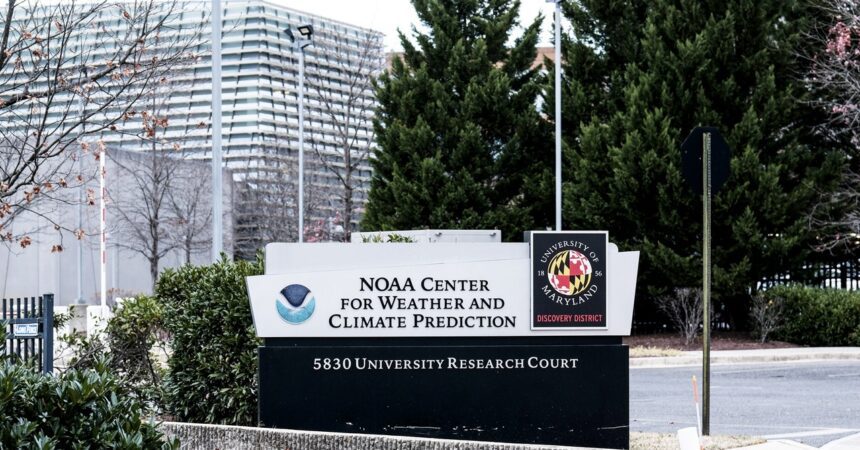Multiple federal employees at the National Oceanic and Atmospheric Administration (NOAA), the US federal agency tasked with monitoring and modeling the oceans and atmosphere to forecast climate and weather changes, have reportedly received directives to temporarily halt all communications with foreign nationals, including those directly affiliated with the US government, according to information obtained by WIRED.
An internal communication acquired by WIRED indicates that NOAA’s National Marine Fisheries Service (NMFS) has been instructed to pause all “ALL INTERNATIONAL ENGAGEMENTS.” (Emphasis theirs.) This directive extends to participation in international commissions as well as correspondence “with foreign national colleagues.”
Furthermore, the email instructs NMFS personnel—who are responsible for advocating for the conservation of marine life and the sustainability of the United States’ seafood supply—to detail any ongoing international collaborations for review by higher authorities, including officials at the US Department of Commerce (DOC), NOAA’s parent agency.
The NOAA and DOC have not yet responded to requests for additional information. The reasons behind these communication restrictions remain unclear, as does the duration of these orders.
As per a source familiar with NMFS operations, who requested anonymity due to not being authorized to communicate with the media, NOAA officials discussed feeling targeted by the Trump administration during a recent meeting. They expressed concerns about “huge exposure” related to offshore wind initiatives and their involvement in international wind energy workshops, conferences, and summits.
The agency had been planning to host international fellows and interns this summer connected to an offshore wind development working group established by the International Council for the Exploration of the Sea, which is the oldest intergovernmental science organization globally.
On his first day in office, President Donald Trump issued an executive order aimed at hindering wind energy expansion. In his first speech post-inauguration, he told supporters, “We’re not going to do the wind thing.”
An additional source within NOAA revealed that the communication ban also applies to the National Environmental Satellite, Data, and Information Service (NESDIS). Alongside collecting data from various federal agencies, NESDIS collaborates with numerous international partners. The weather and climate data gathered by NESDIS are vital for air travel safety, drought management, coral reef monitoring, and shielding railway transport against extreme weather.
According to NESDIS’s official website, it collaborates extensively with the European Space Agency, which provides data access through a network of Sentinel satellites managed by EUMETSAT, an international weather monitoring entity comprising over 30 member nations.
WIRED previously reported that NOAA officials were instructed to provide Nikhil Rajpal, a former Twitter employee lacking expertise in ocean and atmospheric science, the ability to modify documents relating to the agency’s operations hosted on Google Sites. Sources revealed that these instructions originated from acting commerce secretary, Jeremy Pelter.
Government documents indicate that Rajpal currently holds working email accounts with both NOAA and Elon Musk’s Department of Government Efficient (DOGE) task force. Additionally, WIRED has learned that Rajpal is identified as an “expert” on a roster maintained by the Office of Personnel Management, the federal human resources agency, where DOGE operatives have set up a server to collect data on federal employees as part of an ongoing communication strategy regarding the administration’s deferred resignation initiative.
NOAA has been a frequent target for conservative criticism, with many advocates calling for various aspects of the agency’s functions to be dismantled or privatized.










